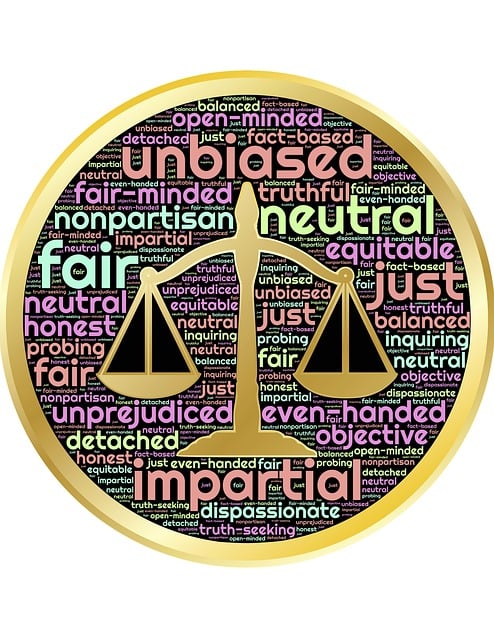RF Regulatory Agency investigations are vital for maintaining standards in wireless communications, aerospace, and defense sectors, ensuring public safety. These probes address issues like non-compliance with RF emission limits, device interference, and handling. Businesses face significant risks, including fines and legal action, requiring specialized legal support from professionals experienced in white-collar crimes. Proactive engagement with regulatory bodies and legal advisors is crucial to avoid these penalties, making it more cost-effective than potential real estate litigation services associated with non-compliance. Efficient legal practices are essential for managing the Cost of Real Estate Litigation Services in high-stakes cases, ensuring fair outcomes while mitigating financial exposure.
“In today’s interconnected world, understanding RF Regulatory Agency investigations is paramount. This comprehensive guide delves into the intricacies of these inquiries, providing a thorough overview for businesses across sectors. We explore the impact on industries, from technology to telecom, highlighting those at risk and why compliance matters. Uncovering the investigation process, we break down each step, offering insights into resolution. Furthermore, we address strategies to mitigate costs associated with Real Estate Litigation Services in RF cases, an essential read for navigating this regulatory landscape.”
- Understanding RF Regulatory Agency Investigations: A Comprehensive Overview
- The Impact on Industries: Who's at Risk and Why It Matters
- Uncovering the Investigation Process: From Complaint to Resolution
- Mitigating Costs: Strategies for Real Estate Litigation Services in RF Cases
Understanding RF Regulatory Agency Investigations: A Comprehensive Overview

RF Regulatory Agency Investigations play a vital role in ensuring compliance with radio frequency (RF) standards across various industries. These agencies are tasked with examining devices, systems, and operations that utilize RF technology to safeguard public health, safety, and environmental integrity. Understanding the scope and process of these investigations is crucial for businesses operating in high-stakes cases involving wireless communications, aerospace, and defense sectors.
These inquiries often delve into complex matters, including allegations of non-compliance with emission limits, interference between devices, and the proper handling of RF-emitting products. Given the intricate nature of RF technology, these investigations require specialized knowledge and expertise. As a result, businesses facing such probes may need to engage reputable legal professionals specializing in white-collar and economic crimes to navigate this challenging landscape. The cost of real estate litigation services pales in comparison to potential penalties and reputational damage associated with non-compliance, making proactive engagement with regulatory bodies and legal advisors essential.
The Impact on Industries: Who's at Risk and Why It Matters

The impact of RF Regulatory Agency investigations extends far beyond the immediate scope of the affected organizations. Industries across the spectrum are at risk, from telecommunications and technology to manufacturing and healthcare. These investigations often stem from allegations of non-compliance with strict regulatory standards, particularly in terms of radio frequency (RF) emissions. For businesses, the potential consequences can be severe, including substantial fines, reputational damage, and even legal action.
High-stakes cases like these require specialized support, especially when navigating complex regulations and legal procedures. The cost of real estate litigation services might seem like a small consideration compared to the potential losses from non-compliance or misconduct. However, for businesses, particularly those in white collar defense, managing these investigations is crucial. Understanding all stages of the investigative and enforcement process is essential to mitigate risks and ensure the best possible outcome.
Uncovering the Investigation Process: From Complaint to Resolution

Uncovering the Investigation Process: From Complaint to Resolution involves a series of meticulous steps designed to ensure fairness and justice. It all begins when a complaint is filed, whether it’s from an aggrieved party or a regulatory agency’s proactive surveillance. This trigger activates a thorough probe, where investigators delve into relevant records, conduct interviews, and gather evidence to substantiate claims. The process aims to uncover any violations of RF (Radio Frequency) regulations, ensuring compliance across industries heavily reliant on wireless technologies.
As the investigation progresses, entities under scrutiny have an opportunity to present their case, often leading to negotiations or, in more severe cases, jury trials. The outcome varies based on the merits of each respective business’s defense, ranging from penalties and fines to acquittal. Ultimately, the resolution phase brings closure, either through a settlement that dictates remedial actions or a dismissal if the allegations prove unfounded, thereby emphasizing the importance of robust legal representation throughout the entire process, including managing the cost of real estate litigation services, general criminal defense, and ensuring compliance with evolving RF regulatory standards.
Mitigating Costs: Strategies for Real Estate Litigation Services in RF Cases

In RF regulatory agency investigations, mitigating costs is a strategic concern for law firms handling real estate litigation services. High-stakes cases often involve complex issues and extensive documentation, driving up the cost of representation. To address this, legal professionals must adopt efficient practices throughout all stages of the investigative and enforcement process. This includes meticulous case assessment to identify potential cost savings, early case evaluation to resolve disputes without prolonged litigation, and informed resource allocation to ensure that efforts are aligned with clients’ objectives.
By implementing these strategies, law firms can provide high-quality representation while managing fees effectively. This approach not only benefits clients facing significant financial exposure in RF cases but also fosters a more efficient legal ecosystem. Streamlining processes and leveraging technology can further reduce the cost of real estate litigation services, ensuring that all parties involved benefit from a balanced and just resolution.
RF Regulatory Agency investigations can significantly impact industries, particularly those involved in wireless communications and real estate development. As seen throughout this article, understanding the investigation process, from initial complaints to resolutions, is crucial for businesses at risk. Mitigating the associated costs of Real Estate Litigation Services in RF cases is essential for maintaining financial stability during these challenging times. By employing proactive strategies and staying informed, companies can better navigate these investigations and protect their interests.






